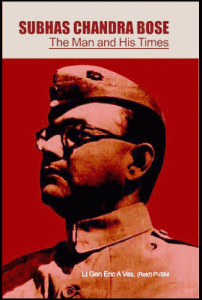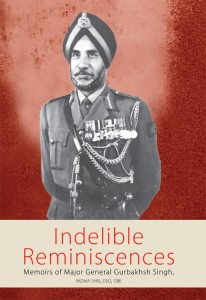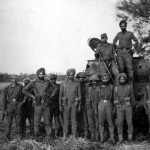On the third day after the fall of Singapore, the Japanese were to take possession of the city on 17th February 1942. A day earlier, all white troops had gathered at Changi Camp in order to surrender. On that very day Lieutenant General A.E. Percival, GOC-in-C, promulgated his last ‘Order of the Day.’ In this order he announced some immediate gallantry awards. Two of the awards were DSOs (Distinguished Service Orders).
One of these was awarded to the Commanding Officer of the 5/11 Sikh Regiment, Lieutenant Colonel Parkins and the other to me. Since this order could not be sent out of the camp or Singapore due to dislocation of all communications, it was nicely packed, sealed and put in a steel box and buried in the camp itself. It was made incumbent on the senior surviving officer among those who were present at the time to bring this box and the order contained therein to the notice of the Army Authorities when Singapore was re-captured. No news of the award had reached me.
About one and a half year after the surrender, one of the men from my unit happened to reach Kluang after a long stay due to 122 | Indelible Reminiscences sickness in the hospital at Singapore. I summoned him in the evening and asked him about his general welfare and of the days that he had spent in the hospital. Taking a keen stock of the whole situation around him he diffidently took out a badly crumpled letter and handed it to me. It bore my address in Urdu. He informed me that Major J.H. Collin had given him this letter about a year ago on his visit to hospital where he was hospitalised. Major Collin was one of the British Officers attached with my Battalion. He further told me that Major Sahib had asked him to deliver the letter to me as and when he returned to the Unit.
I opened the letter after he left. The word “Mubarak’ (Congratulations) was written thrice on the top of it. When I began to read further I could not fathom anything. The only information I could gather was that I had been awarded the ‘Distinguished Service Order’ (DSO). Curiosity made me pour over the letter more intently in the seclusion of the night. I discovered that although the script used was Urdu (Persian), the message given was in English. Now I could decipher all that I have related above. I kept the letter secret for fear that the knowledge of it may lead the Japanese to look at me with hateful eye.
I came to know later that nothing that was written in English, was allowed to pass out of the Changi Camp. Major Collin was eager that the news of the award should reach me. From one of his fellow British Officers who had known the language, he learnt to write Urdu. After six months of toil he wrote his first letter in Urdu, which was ultimately delivered to me. This letter is still likely to be in my possession.
When the Japanese war front expanded vertiginously, it ran short of trained officers. We had many changes in the Japanese staff looking after us. They were found to be least interested in our welfare. A stage came when a mere Sergeant-Major was left in charge of our camp. He was handsomely built and tall by Japanese standards. He was always well turned out in top boots, a sword invariably hung by his side, but his uniform was completely faded and patched up at several places. He was rather fond of talking in English. For the pleasure of conversation, he visited us frequently and even became friendly. Jokingly, I once told him that it was always a hand-picked man who would be chosen for appointment as a Sergeant-Major in the Indian Army. His turn out and discipline are considered exemplary.
The Japanese replied, “similar is the practice in Nippon Army.” I smilingly said that if he was the example of Nippon turn out, then I could well imagine what the rest of his Unit would be like. The remarks cut him to the quick. Suddenly he became despondent, his forehead wrinkled, his eyes reddened. He sat stone still. I felt for having injured his feelings and tried to humour him. “I had never meant to criticise the state of your uniform.” I said, “I was just joking. In fact you are a model of a smart soldier.” Still he appeared unmoved. After a while he broke out, “My body my nai, Taino Hika,” meaning “My body is not mine but of the King.” He then related the ‘vow’ that he had taken when three years ago, he had left the country for fighting the war.
The ‘vow’ was that he would fight in the same set of uniform which he was wearing and never to change as long as he survived. It was his wish that the spare set of uniform which the Nation was keeping for him, should go to the man, who would replace him after his death. We were stunned into appreciation and constrained to laud his high sense of sacrifice and the National spirit.
At the first opportunity that I got of addressing my troops, I familiarised them of what had passed between me and the Japanese Sergeant-Major. In our Army, when a Board of Survey to condemned articles of clothing is held in the Unit, no one sleeps that night. For the greed of receiving a new uniform, wearable articles are rubbed against the floor and made unserviceable and then washed and pressed for being presented before the Board. Boots are split-up, mosquito-nets are cut out, so that the Board may mark them for replacement. Such is the difference between ours and the Japanese National Character.
(After the Malayan war, heaps of abandoned cars could be seen collected on either side of the roads particularly the main road that connected Singapore with main-land). At Kluang, there was a dump of such abandoned cars in a rubber plantation close to our camp. My men had no value for them since they had been pushing abandoned cars into the sea in hundreds every day while they were posted at Kalang Airport in Singapore during operations. The Kalang Airport was the terminal airfield to fly out of Singapore. The evacuation from Singapore had started as the fighting line approached nearer and the fall of the Island had become evident. So much was the rush and paucity of space for parking at Kalang that previously abandoned vehicles had to be pushed into the sea to make room for those which drove in later.
On their way to and fro from work, our troops would escape to where abandoned cars were heaped and wantonly indulge in treasure hunts. They would remove different parts of the cars just for the heck of it, use them as a child uses a play-thing, and throw them away to seek new toys. They were blissfully blind to the grave loss they were causing. With a pick-axe they would break open a reflector to detach a bulb, remove the battery, light the bulb at night by connecting it to the battery, play with the contrivance for a couple of days and then consign it to limbo. When our regulation foot-wear had worn-out completely, all of us were driven to wearing wooden sandals. Troops often tore out Rexene from new abandoned car-seats to add colourful strap to their sandals.
After having got used to such untrammelled vandalism, someone unwittingly attacked a car belonging to a Japanese Officer parked by the side of the road. The act caused a storm which was contained with great difficulty. Lack of sense of proper value leads us to such inferior behaviour. Today we are proud citizens of a free country. It is more than a quarter of a century since we become independent. Yet we continue to witness primitive acts of vandalism and destruction on the part of our youth. All of their protest begins with the burning, stoning and destruction of State Buses and Railway Stations. Everything belonging to India is our joint property. All of us pay taxes to form it. New taxes have to be levied for raising the extra funds required for replacement. The burden, willy-nilly, falls on our own shoulders. (How much better would it be, if we organised our strikes etc. if at all needed, with due thought and wisdom, without indulging in hooliganism). As chaotic happenings occur in India, the figure of the Japanese Sergeant Major rises like an apparition before my eyes. If we have to keep abreast of other progressive countries, we shall have to make his example as our own.
Our life, entailing comparatively lesser tension out of Singapore, was not welcome to anyone at Singapore, especially to our comrades of the INA. They continuously felt jealous at our being away. Perhaps they feared that when put in the question box at the end of the war, how would they prove that a volte-face on their part was necessary because of circumstances beyond their control. Subconsciously, they wanted to see us in the vertex of pressure that would compel us to compromise also. Therefore, when having come to Singapore, Netaji Subhas Chandra Bose took the reins of the INA in his hands in July 1943; he was instigated to rope me in. He was told that there were few other officers so capable and as well trained as I was and that my advent into the INA would have important repercussions. Consequently, some ten of us were deported in a truck and driven from our camp to Batupahat, where Netaji had come on a visit on August 28, 1943. It was about 30 miles from Kluang.
The ADC to Netaji was our friend. He met us in advance and strongly advised me, “You shall never get such an opportunity all your life. Netaji likes you very much. Perhaps, he may get you a position of the highest honour. Don’t let this opportunity slip.” We were then directed to a room where chairs had been arranged in a semi-circle. A single chair also stood in front of us. The spell of calm was broken by the entry of Netaji after a while. All of us stood to attention and wished him. He shook hands with us one by one and then beckoned us to settle down. He himself sat in a chair that faced us. In a voice charged with persuasiveness he began his address.
“Gentlemen, all of you have been confined within the narrow limits of the Island of Singapore. Therefore, you do not know what is happening and what has already happened elsewhere in the world. I have myself come from the Russian and German war fronts. The situation now is such that the victory of the Axis powers is ensured. The defeat of Allies is imminent. Bearing this in mind, we have to consider what best course we can take to liberate India. When the British leave after defeat, we become slaves of the Japanese.
This is worse. Only one course remains upon to us and that is that we should join hands with the Japanese to free our country. It is only as Comrades-in-arms that we can force the Japanese to leave India free after the British have been forced to vacate. Now is the moment that Mother India needs the sacrifice of each of its sons. Come and willingly join us in our war of liberation.” He ended his short speech on a note of veiled threat. “Whoever does not serve India now and at this moment,” he continued, “will lose all rights to call himself an Indian later. He will also be issued a third class ticket and dispatched along with the British.”
Comments were asked for. Netaji signalled to me for my views. Humbly I got up. Most courteously I replied. “I have no doubt that whatever you have said about the Russian and German fronts are fully true at the moment. But I have been a student of Military History for the past twenty years. I beg to differ with you estimation and hypothesis. I know that the situation is bound to undergo change although delay may occur.
In my judgement, it will be the Allies who will be victorious. It is because the Americans had remained unprepared and that is why Allied victory is delayed.” Continuing in the same strain I posited, “In case it is your will that we must join the INA we dare not refuse. But still we have no faith in the Japanese. We still do not feel that taking the Japanese to Indian soil will produce the desired results. After seeing their behaviour during the war and their treatment of the people during occupation, we have lost all faith in their intentions. Joining them without full faith would make us feel as if we were black-sheep amongst others.” Further, I requested, “I am a man of principles. Having eaten his salt, if I can betray one master, I can also betray another.” On hearing this Netaji got up. Patting me on my back he told me, “I feel happy at what you have said. I will be the last one to force you to join us without having faith and conviction in our mission. However, there is time for you to ponder over what I have proposed. I shall contact you after ten days.”






